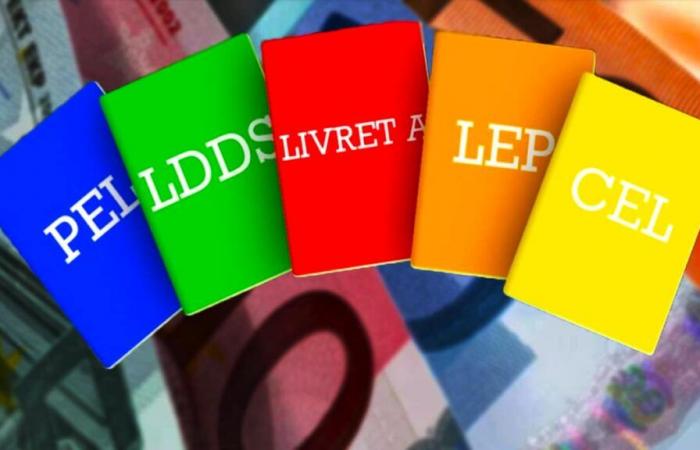Hide summary
Saving is essential. However, it is not always easy to understand the taxation of interest! Livret A, LEP, PEL… All investments are not not treated in the same way when it comes to tax ! This is also what our colleagues at Moneyvox remind us, who decided to dissect all these investments that the French love!
Livret A, Livret Bleu… the advantages of tax-free investments
For certain regulated savings accounts, interest is net of taxes and social security contributions. This is particularly the case for the Livret A, the Livret Bleu (at Crédit Mutuel), the Livret de Développement Durable et Solidaire (LDDS), the Livret d'Épargne Populaire (LEP) and the Livret Jeune.
Concretely, this means that the interest you receive is entirely added to your capital. There is therefore no deduction from your return! Plus, it’s very easy to understand annual interest! As explained Moneyvoxit is the bank which calculates the net interest and pays them directly into our booklet.
As of January 1, our statement only shows the interest added to our savings! No complex calculations, no surprises. Choosing a Livret A or another tax-free livret thus combines simplicity and efficiency. Enough to give us peace of mind and save precious time!
To have
It is neither the PEL nor the Livret A: the winning solution to prepare your children's future
What to remember about home savings
For the CEL and the PEL, the question of taxation can quickly create confusion among savers. Unlike Livret A, interest is not completely exempt from taxes. The CEL is currently remunerated at 2% and is subject to a flat tax of 30%reports Moneyvox.
Concretely, the bank will automatically deduct this 30% from annual earnings. This also explains the different lines that we can observe on our reading on January 1. Gross interest on one side, and tax and social security contributions on the other.
It's the same thing for the PEL adds Moneyvox. For PELs opened before 2018, a specific regime applies during the first 12 years. The interest here benefits from an income tax exemption.
But after this period, the interest is subject to social security contributions. Then, to income tax or PFU depending on the option chosen by the saver. Information to absolutely remember for all savers! In fact, this will allow them to know more precisely the profitability of their savings.
Should you invest in a Livret A or a bank book in 2025?
Are you planning to open a traditional bank savings account in 2025? This seems tempting, given that this type of investment gives you many advantages. In particular tboosted yield and opening bonuses. However, we must not forget that these booklets have to do with taxation.
To have
Livret A, electricity, taxes, tolls, unemployment…: everything that changes for the French in 2025
They do not escape the flat tax. Part of your earnings will decrease following income tax (12.8%) and social security contributions (17.2%). This is why you should think twice before opting for this type of investment!
Conversely, the interests of your Livret A, just like those of the LEP, benefit from a total tax exemption. In fact, you do not have to declare them to the tax authorities. Which therefore makes it an interesting option for those who want simple and secure savings.
Source : Moneyvox






